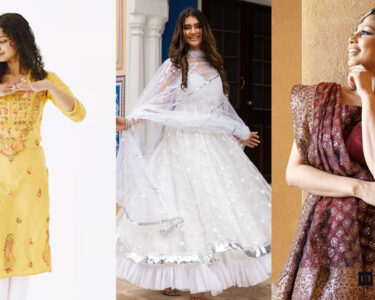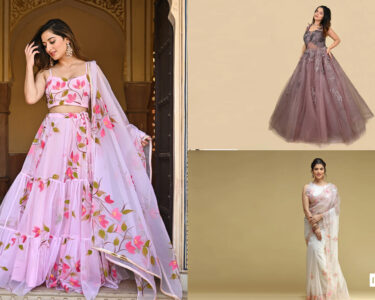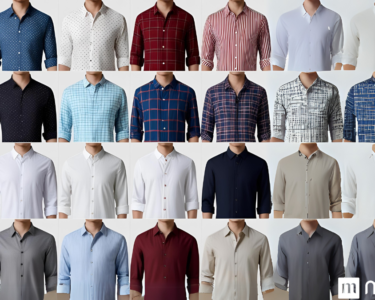India is renowned for being a nation with the most diverse textile cultures, and nothing can exemplify this better than the saree. The saree, worn by millions of women nationwide, represents local cultural heritage, customs, and workmanship rather than merely a piece of clothing.
The saree is an evergreen traditional outfit for women, amplifying elegance every time its worn. For centuries, women have cherished the different draping styles of sarees and embraced their different colors. Every location has distinct weaving methods, themes, patterns, and draping styles. Its flawless blending of conventional hues, designs, and textiles produces a work of art that accentuates women’s beauty.
Let’s take a journey across the nation to explore and discover some of the most famous sarees from different regions.
Banarasi Saree
Famous in: Varanasi
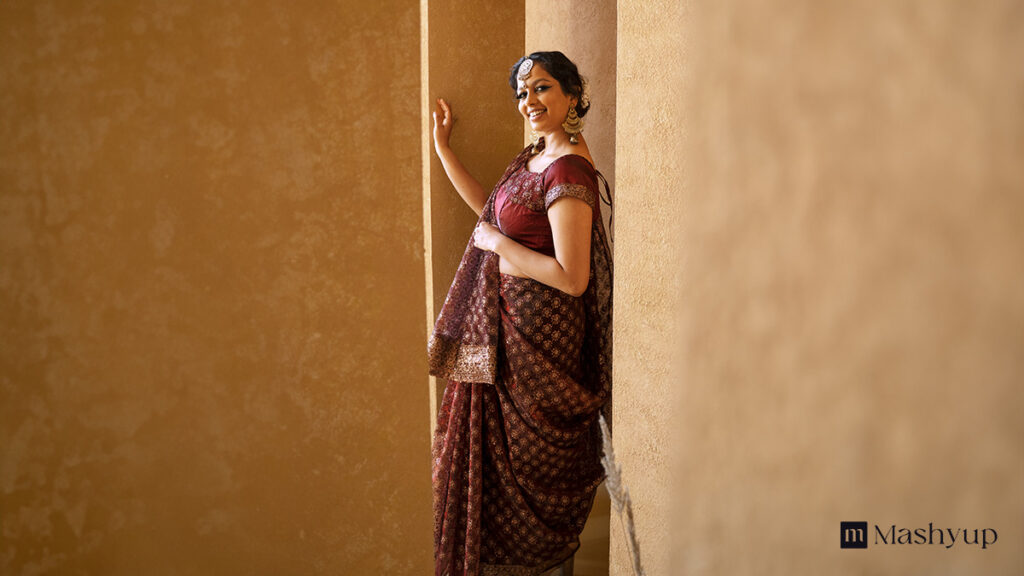
Banarasi Saree is one of the most stunning and luxurious sarees in India. It is a traditional Indian wedding saree with woven silk fabric and intricate zari work. It is known that originally it was knitted with real gold and silver threads for the royals. These sarees are popular for their geometrical designs, flowers, and animal motifs.
Fabric: Pure Silk
Distinct features: Gold and silver zari work / heavy brocade/ rich texture.
Kanchipuram Saree
Famous in: Tamil Naidu
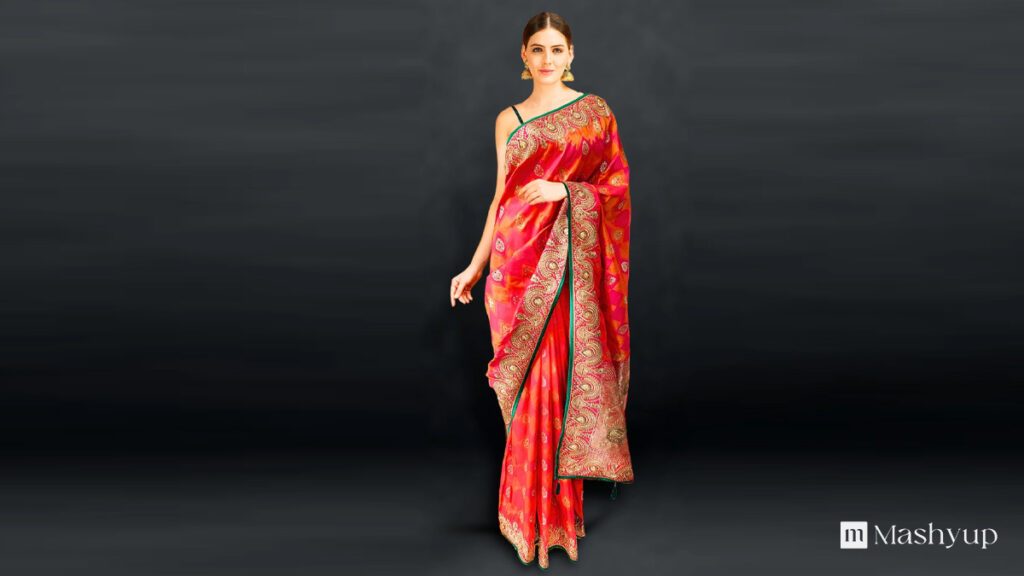
The Kanjeevaram saree, which originated in the temple town of Kanchipuram, is a widely recognized symbol of bridal apparel in South India. Therefore, it mostly has religious motifs inspired by the temples and mythological tales. Also, these sarees always have contrasting colors that enhance the drape’s texture.
The silk used to make these sarees is renowned for its vivid colors and wide borders decorated with gold zari work.
Fabric: Rich textured Silk
Distinct Feature: Royal and heavy borders/ Bright colors.
Chanderi Saree
Famous in: Madhya Pradesh
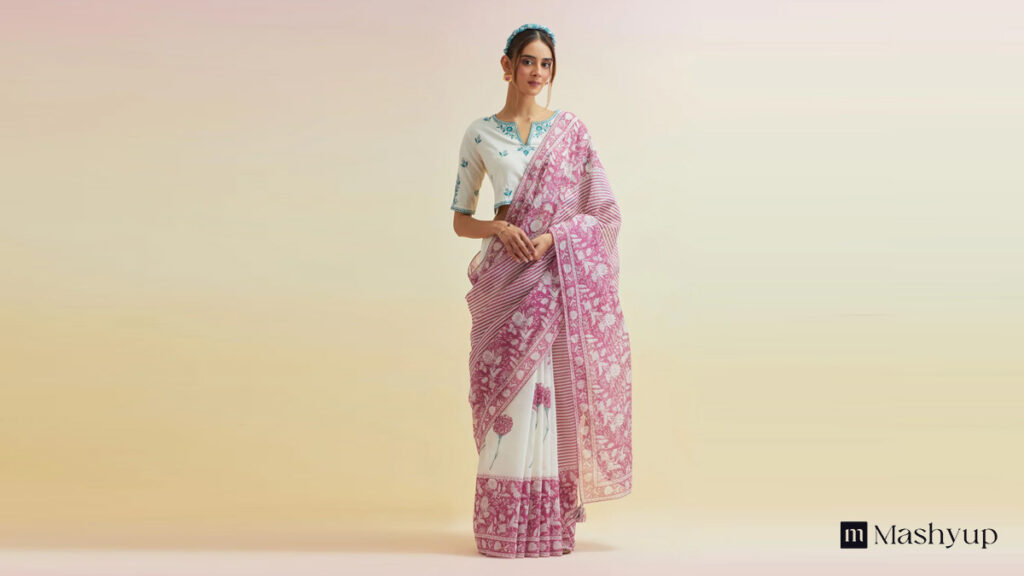
Chanderi sarees are renowned for their glossy, transparent, and lightweight fabric. Usually made of silk, cotton, or a combination of the two, these sarees are embellished with geometric designs, flowers, and peacock motifs. It is believed these sarees never lose their shine, and hence you can be spotlight-stealing if you wear them to any wedding or party function.
Fabric: Mix of silk and cotton
Distinct Feature: Sheer texture/ glossy finish.
Paithani Saree
Famous in: Maharashtra
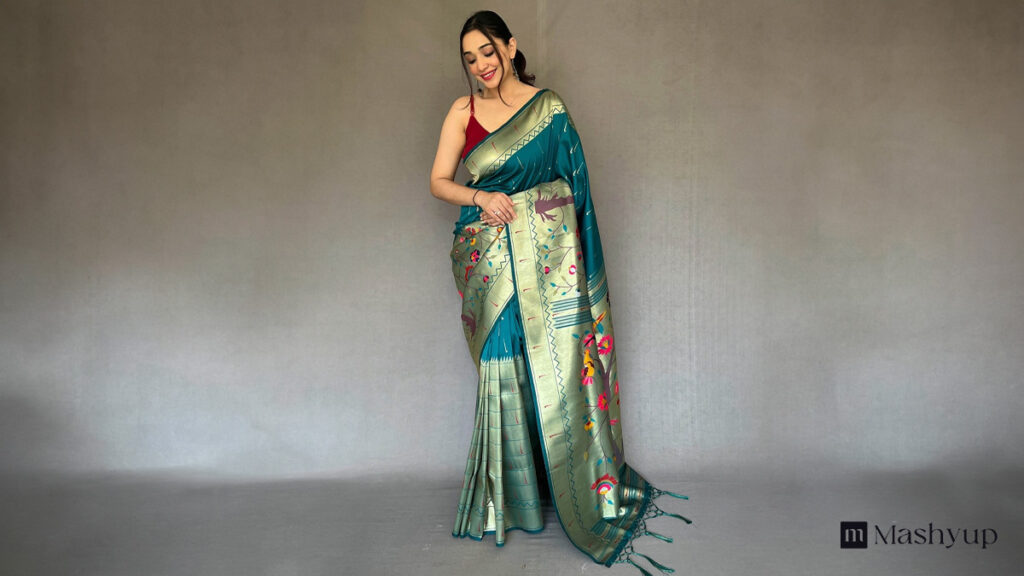
Paithani sarees, originating from the town of Paithan, are renowned for their elaborate zari embroidery and handwoven silk. While the saree is embellished with exclusive designs, the pallu frequently has motifs inspired by nature, such as flowers and peacocks. This saree is famously worn with a Nauveri drape, making it a typical Maharashtrian traditional wear.
Fabric: Silk
Distinct feature: Peacock motifs/Rich Zari borders/ contrasting hues.
Bandhani Saree
Famous in: Gujarat
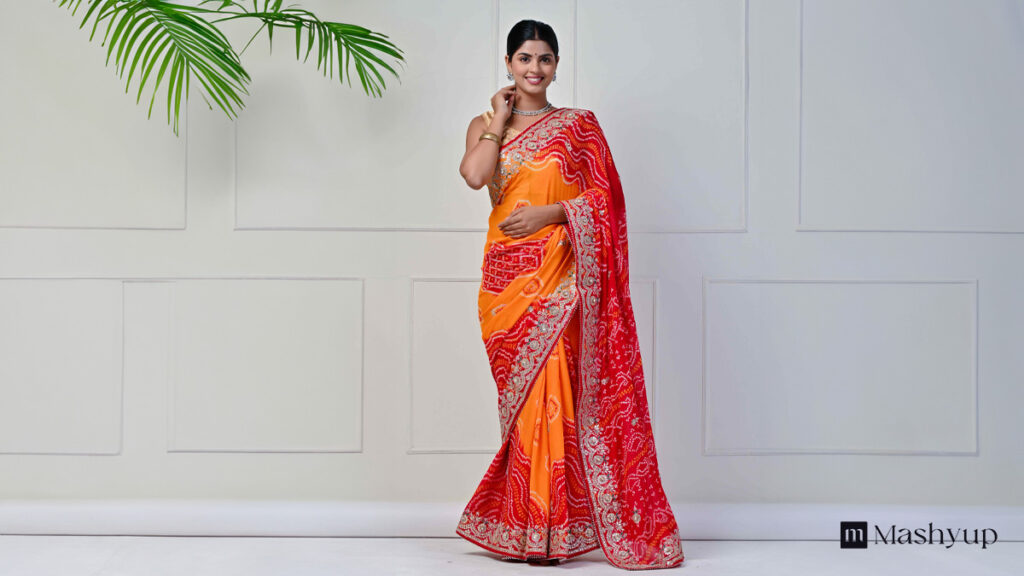
A bandhani saree is a beautiful pattern of dots, waves, or squares created on the fabric through the complex bandhej technique of tying and dying. These sarees are embellished with mirror work or distinct patterns and come in vibrant colors. Bandhani sarees, if worn by the brides, are believed to bring them good fortune.
Fabric: Georgette,cotton, silk.
Distinct feature: Tye-dye patterns/ bright colors.
Kasavu Saree
Famous in: Kerala
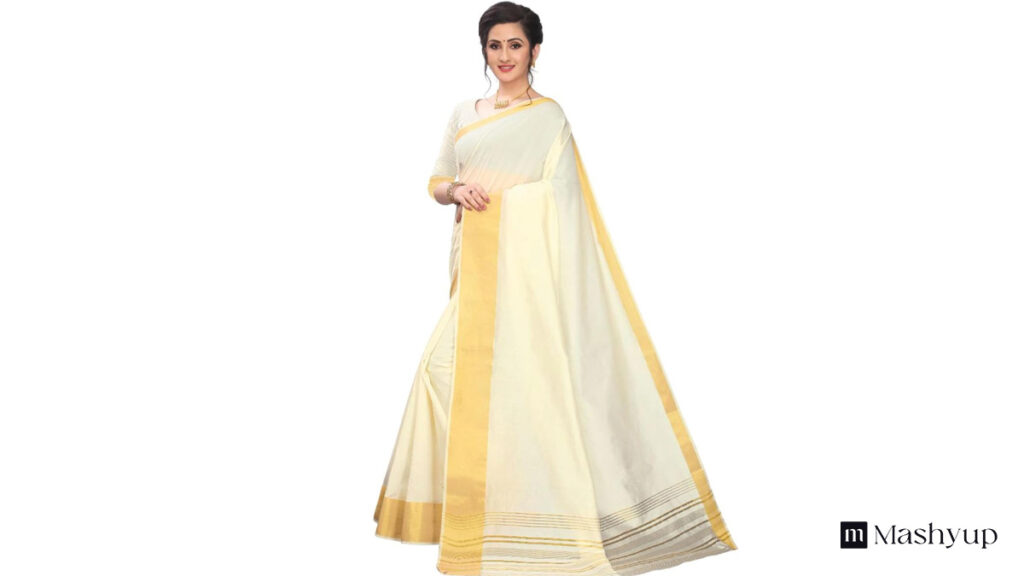
The Kasavu saree, also known as the Kerala saree, is attractive yet simple, with a golden border and an off-white or white fabric. It is typically donned on Kerala’s Onam celebration and other significant occasions. Initially, Kasavu typically included a blouse, dhoti, and a drape but recently, it became a fancy saree for a radiant and refined look.
Fabric: Silk or cotton
Distinct feature: Cream or white base fabric/ zari gold borders.
Tant Saree
Famous in: West Bengal
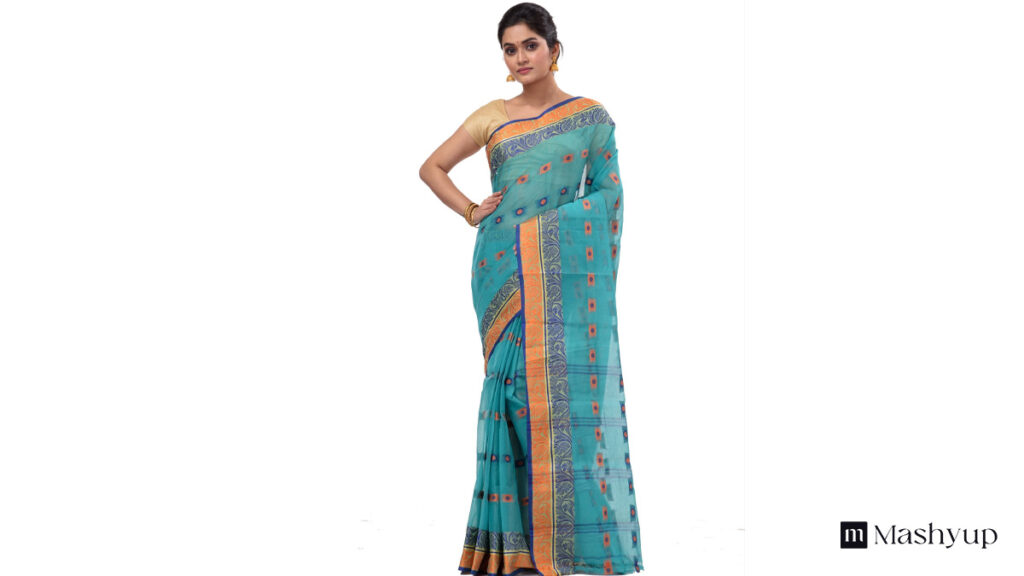
The Tant Sarees are the most lightweight and airy sarees, which prove perfect for Bengal’s hot and humid climate. Tant Saree is often made of cotton and is handwoven with bright colors. Tant sarees are very distinguishable as their red and white colors are elegantly personified.
Fabric: Cotton
Distinct features: Light and comfortable /Broad borders/Vibrant colors
Chikankari Saree
Famous in: Lucknow
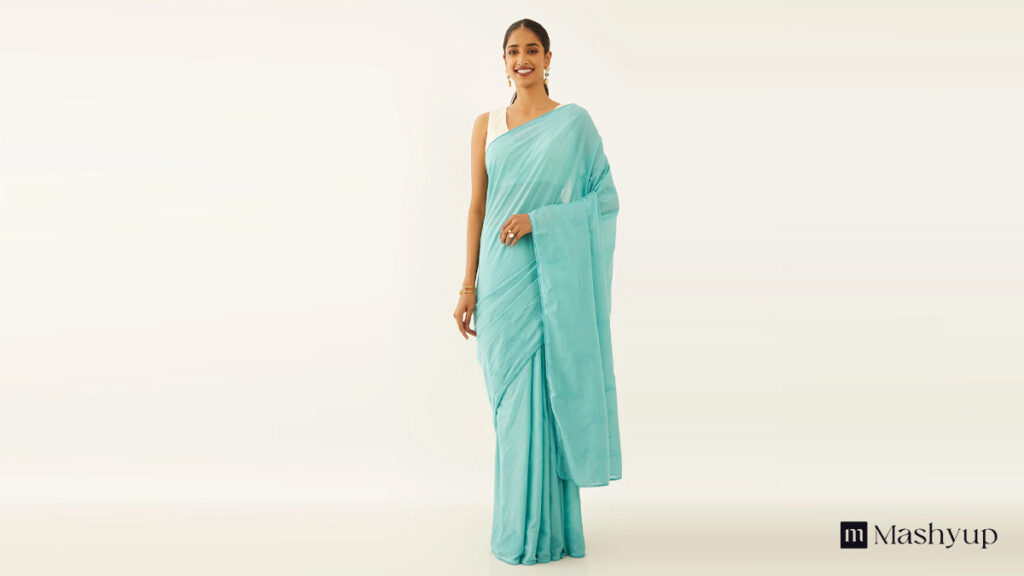
The famous saree from Nawabi City is one of the most elegant sarees in India. Curated with embroidery all over the fabric and subtle colors, this saree is the most versatile saree that can be worn anywhere at any time of the day.
Fabric: Chiffon or georgettes
Distinct features: Embroided all over / soothing colors / lightweight.
Phulkari Saree
Famous in: Punjab
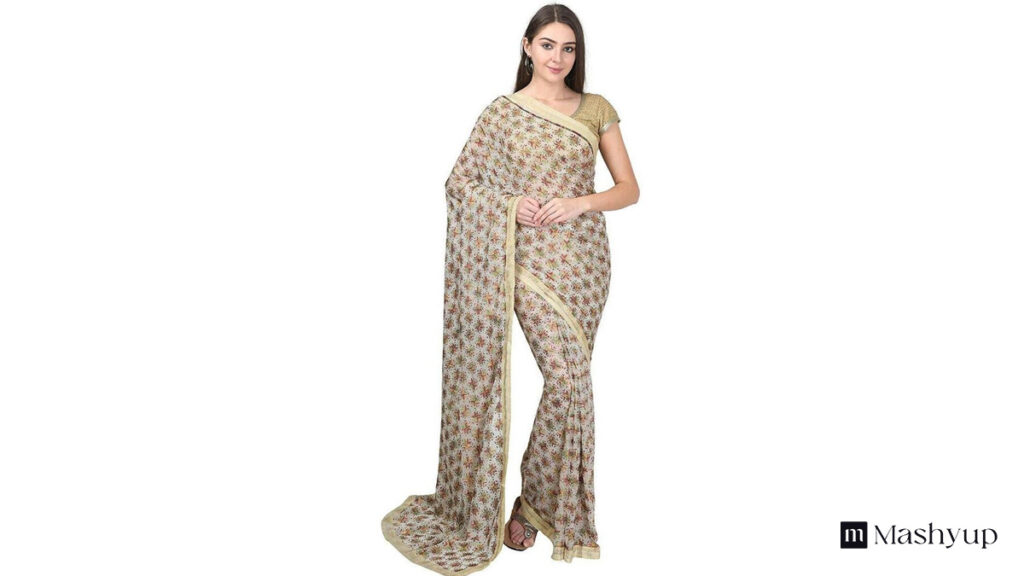
Phulkari, being the folk embroidery of Punjab, curates a saree filled with phulkari work and contrasting colors. It comes embellished with beautiful embroidery done with darn stitches on the coarse side of the cotton. The floral and geometrical designs of phulkari build beautiful patterns on the saree.
Fabric: Georgette or Cotton
Distinct features: Colorful embroidery/ Bold pattern/Vibrant hues.
Bomkai Saree
Famous in: Odisha
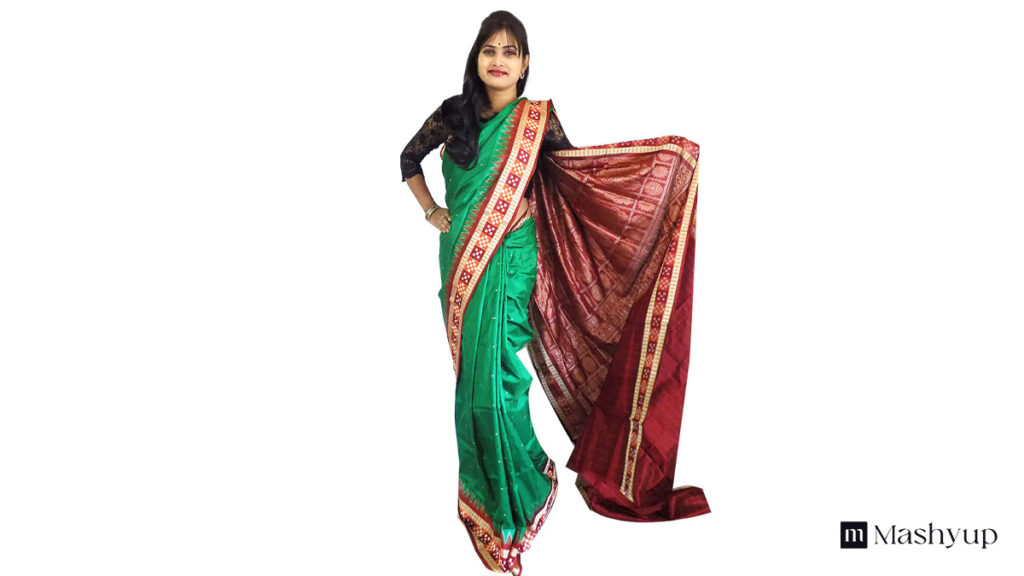
This saree is hand-loomed with Bomkai and looks modern, but the patterns are deeply rooted in the cultural legacy of Odisha. The saree is the epitome of grace, mostly recognized for its bright, distinct colors like green and yellows. While the cotton bomkai saree can be worn for casual outings, the silk Bomkai saree can be used for wearing at festivals and special events.
Fabric: Silk or cotton
Distinct features: Mythological motifs / vibrant colors / Intricate heavy borders.
Sarees for everyone!
India’s saree culture is a colorful mash-up of traditions and skilled labor. Every saree, be it the luxurious Banarasi saree or the simple Kasavu, has its own story. You can have sarees for party wear as well as traditional occasions, it all depends on how you drape and embrace it.
And in the end, we can say that there is a saree for every woman, every emotion, and every occasion, so adorn it beautifully!




